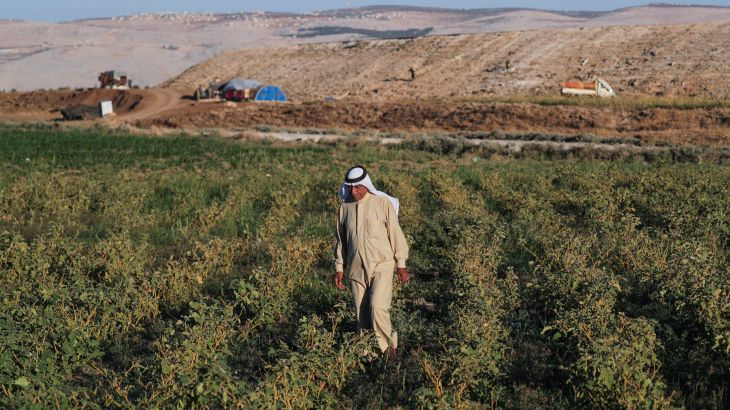War-torn MENA nations missing out on much-needed climate funds
Relief organisations say Iraq, Syria and Yemen in need of much greater financial help to deal with deadly effects of conflict and climate change.

Conflict-plagued nations in the Middle East are among the most vulnerable to climate change but are almost entirely excluded from meaningful financing to mitigate its effects, aid groups warn.
In a joint report focusing on Iraq, Syria and Yemen, the International Committee of the Red Cross (ICRC) and the Norwegian Red Cross demanded greater assistance on Thursday, saying the combined effects of climate change and armed conflict have alarmingly intensified humanitarian woes.
Keep reading
list of 4 itemsUsing AI to listen to Jordan’s date palms
Syria extends permission on post-quake aid border crossings
Sudanese face ‘shocking’ delays, no aid at Egypt border
The Climate Funds Update database, which collates information from 27 United Nations, World Bank and other multilateral funds, listed only 19 projects in Iraq, Syria and Yemen that have been approved for funding as of January 2022, the report said.
It noted the total amount disbursed was just $20.6m – less than 0.5 percent of the money spent on climate projects worldwide.
“Current climate finance distributions almost entirely exclude the most fragile and unstable places,” said the 56-page report.
Anne Bergh, secretary-general of the Norwegian Red Cross, added: “It’s clear from a humanitarian perspective that this must change.”
Climate vulnerable Yemen
According to the report, nearly half of all the agricultural land in the Middle East and North Africa region is affected by high levels of salinity, soil nutrient depletion and wind–water erosion.
“The increasing scarcity of fresh water is a major public health challenge with half of the region’s population living in water-stressed areas,” it said.
Air quality was also listed as one of the major concerns for residents, who are said to breathe “air containing a level of pollutants 10 times higher than what is considered safe”.
Grappling with an eight-year civil war, the University of Notre Dame’s Global Adaptation Initiative ranks Yemen as one of the region’s most climate-vulnerable countries, topped only by Sudan and Afghanistan.
The report listed agricultural land degradation, damage to water infrastructure, pollution, deterioration of protective infrastructure, and deforestation as some of the far-reaching consequences of armed conflict.
“In Yemen, it is not uncommon for people to flee their homes seeking safety from conflict only to then leave that new location because the land cannot be farmed” because of drought and water scarcity, the ICRC said in a statement.
Taking a toll on agriculture
The United Nations ranks Iraq, still recovering from decades of war, as one of five countries most impacted by the effects of climate change, including drought.
Syria is also at heightened risk following more than a decade of fighting that has battered the country’s infrastructure.
“Death, injury and destruction are the devastating and well-known effects of armed conflict,” ICRC regional director Fabrizio Carboni said.
“Less well known are the challenges residents must endure and overcome because of this terrible combination of conflict, climate change and environmental degradation.”
The aid agencies called upon humanitarian, climate and peacebuilding actors to advocate for urgent action, and to make it easier for conflict-affected countries to access financing for climate adaptation and other measures.
They also urged support for displaced people with an emphasis on those facing repeated or protracted displacement.
